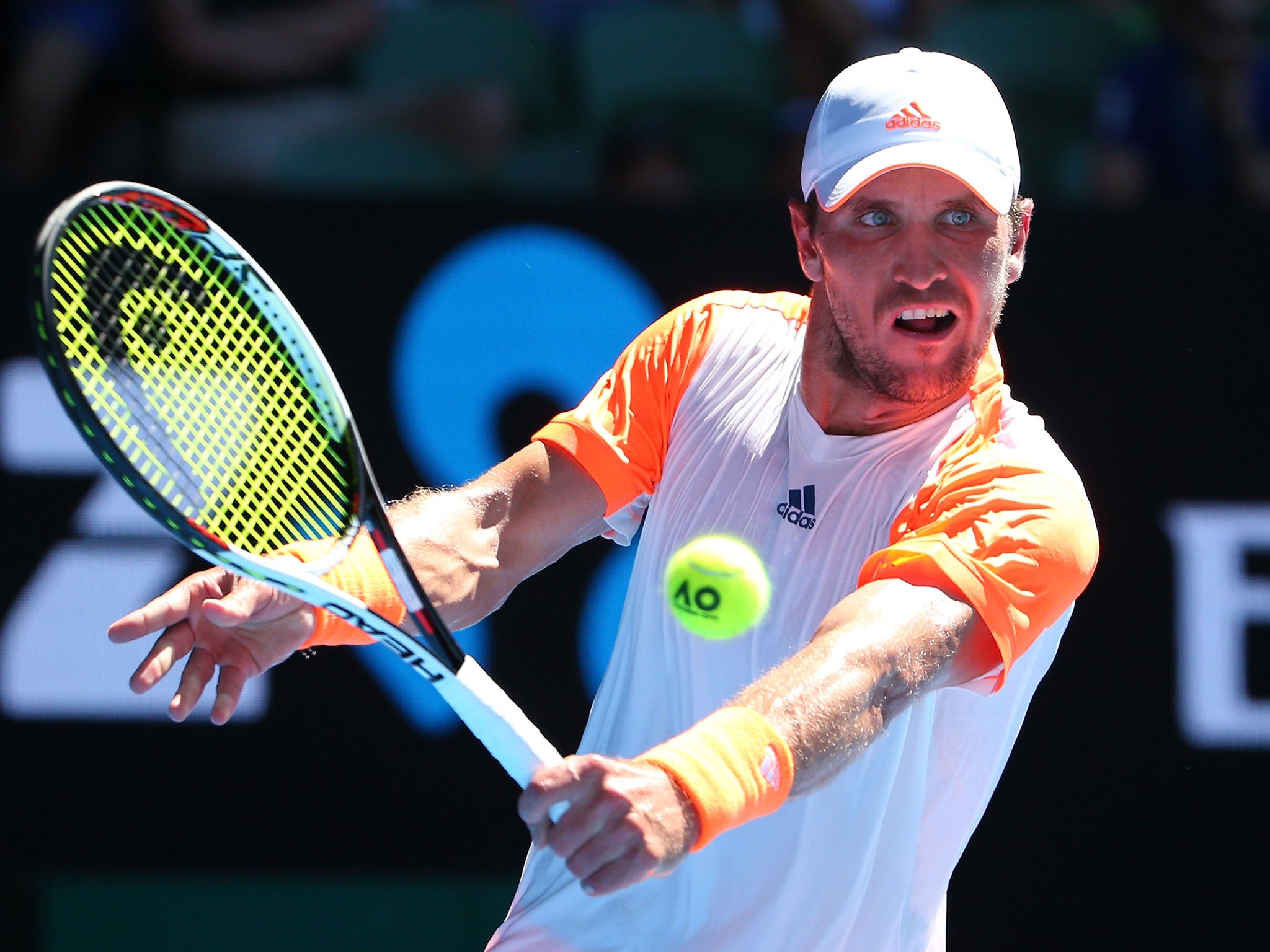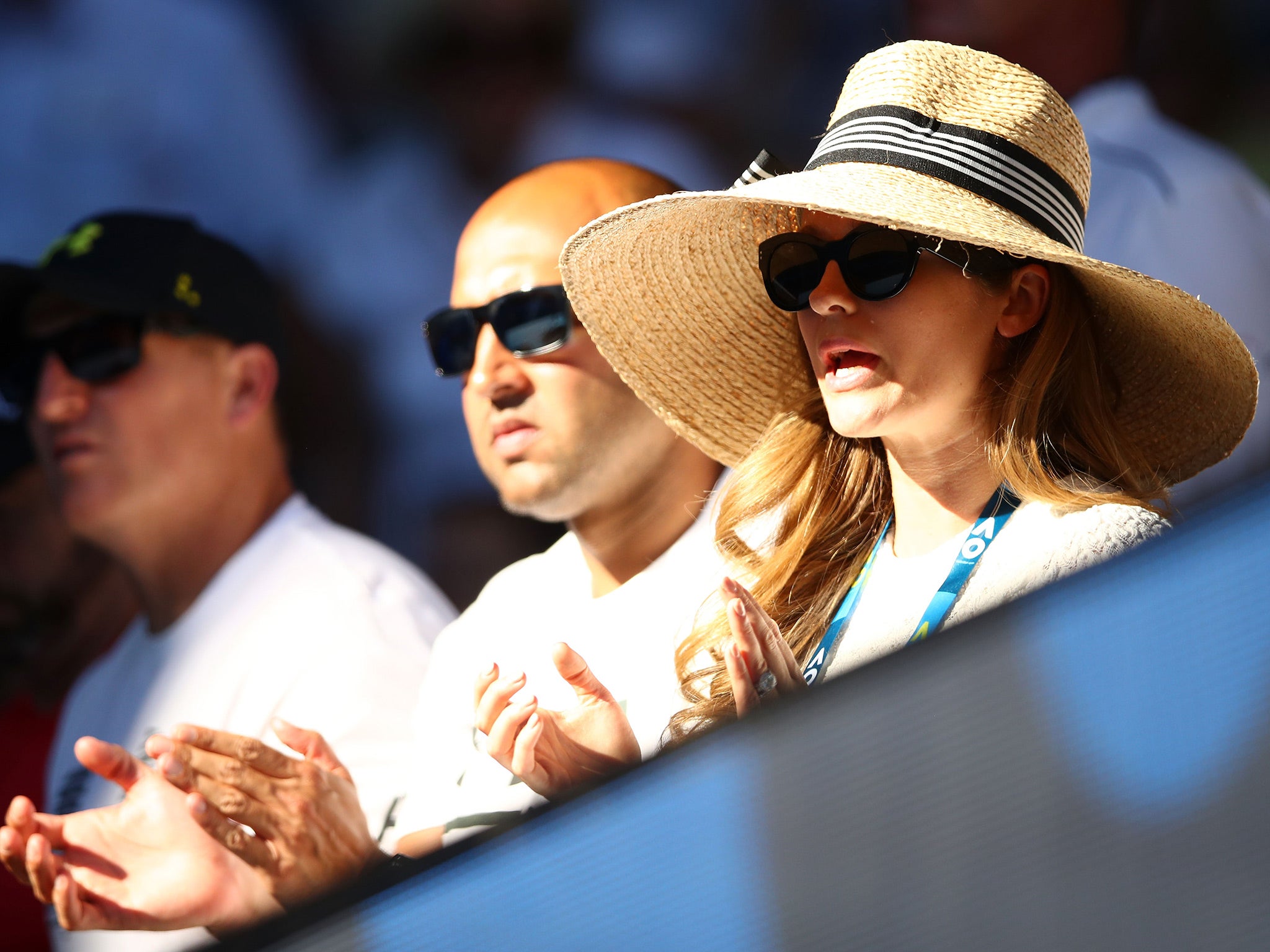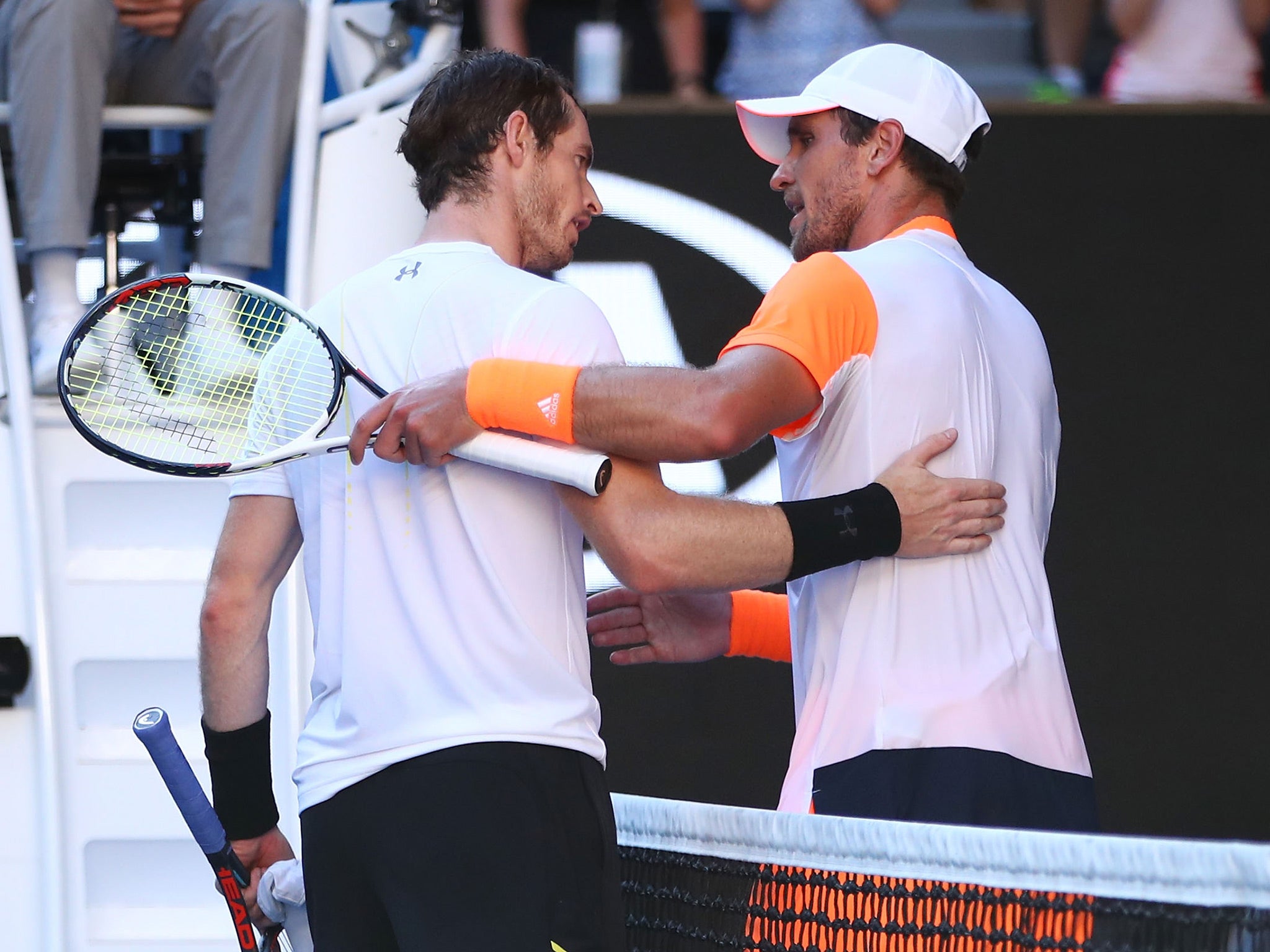Andy Murray crashes out of Australian Open in shock defeat to Mischa Zverev
The Scot's hopes of claiming his first Australian Open title went up in smoke with defeat to the world number 50

Your support helps us to tell the story
From reproductive rights to climate change to Big Tech, The Independent is on the ground when the story is developing. Whether it's investigating the financials of Elon Musk's pro-Trump PAC or producing our latest documentary, 'The A Word', which shines a light on the American women fighting for reproductive rights, we know how important it is to parse out the facts from the messaging.
At such a critical moment in US history, we need reporters on the ground. Your donation allows us to keep sending journalists to speak to both sides of the story.
The Independent is trusted by Americans across the entire political spectrum. And unlike many other quality news outlets, we choose not to lock Americans out of our reporting and analysis with paywalls. We believe quality journalism should be available to everyone, paid for by those who can afford it.
Your support makes all the difference.Who would have thought it? The talk in tennis in the last year or two has been of Andy Murray and Novak Djokovic dominating the game for the foreseeable future, but the Scot followed the Serb out of the Australian Open in extraordinary fashion here today.
Three days after Djokovic lost in the second round to the world No 117, Denis Istomin, Murray was beaten 7-5, 5-7, 6-2, 6-4 in the fourth round by the world No 50, Mischa Zverev.
The 29-year-old German, who has spent most of his career on the Challenger circuit, had never gone beyond the third round of a Grand Slam tournament before he arrived here and is not even the best player in his own family, having been overtaken by his younger brother, Alexander. He is the lowest ranked player to beat Murray in a Grand Slam tournament since the Scot lost to Juan Ignacio Chela in the first round here 11 years ago.
Djokovic’s exit last week had left Murray as the hot favourite to win the title for the first time following his five previous defeats in finals, but the world No 1 was outplayed by a serve-and-volley exponent who played the match of his life.
Zverev, a left-hander, charged into the net behind his serves, attacked Murray’s second serve and took every opportunity to show his volleying skills. He served well, but it was his stunning volleys that were the key to his victory.
Murray, hurried into his shots, netted too many backhands when under pressure, failed to hit enough telling lobs and all too often saw his attempted passing shots cut off at the net.
“It just wasn’t meant to be,” Murray said afterwards. “He served very well when he needed to, especially when he was behind in games. He deserved to win because he played great when he was down and also in the important moments. I was behind in the last couple of sets the whole way. But in the first two sets I had chances. I was up a break I think in both of them pretty early, but I couldn’t convert my opportunities.”

Remarkably, the two older members of the so-called “Big Four”, Roger Federer and Rafael Nadal, who have returned to competition after cutting short their 2016 seasons because of injury, have both outlasted their two younger rivals. Federer beat Kei Nishikori to secure a quarter-final showdown with Zverev while Nadal will meet Gael Monfils in the last 16 on Monday.
Murray, who had reached the quarter-finals here for the previous seven years in a row, might start to wonder whether he will ever win this title. Until this year he had enjoyed more consistent success in the Australian Open than at any other Grand Slam tournament. In the absence of Djokovic, who has beaten him five times at Melbourne Park, this was surely an outstanding opportunity.
At least the defeat will not affect Murray’s position at the top of the world rankings, which he looks certain to hold on to for at least another three months.
It just wasn’t meant to be. He served very well when he needed to, especially when he was behind in games.
After several days of comparatively cool conditions, ice towels were the order of the day as the temperature approached 30C when Murray and Zverev walked into Rod Laver Arena just after 2.30pm.
In the early stages Murray seemed in control, but from 3-1 and 40-0 up he let Zverev back into the opening set. The German broke twice in a row from 3-5 down and served out for the set in style, finishing the job with an ace.
Murray looked more fired up at the start of the set, greeting his break of serve in the second game with a clenched fist, but although the Scot went on to level the match Zverev continued to give him trouble. Murray, looking increasingly out of sorts, played a poor third set and by the time he was broken in the opening game of the fourth the alarm bells were ringing.

Although Murray tried to raise his game, Zverev’s confidence was sky-high as he headed towards the finishing tape. When he served for the match the German held his nerve after going 15-30 down, at which point he stretched to play a sensational stop volley winner. Two more Murray errors did the rest.
Murray insisted afterwards that he had not felt flat during the match. “I was getting myself pumped up,” he insisted. “Sometimes at the end of the sets I was trying to get a little more energy, show more positive body language. I did that at the end of the match and at the end of the first and second sets.”
The Scot was asked whether his short off-season had contributed to his defeat. At the end of November he had secured the year-end world No 1 ranking by beating Djokovic in the very last match at the season-ending ATP World Tour Finals and was soon heading to Miami for his winter training camp.
“It was a great way to finish last year,” Murray said. “I was full of confidence coming into the beginning of this year. I prepared as best as I could. But maybe I’ll have to have a look back and assess some things and see maybe if there's some stuff I could have done differently.”
Zverev said it had been the best match of his life. “I believed in myself,” he said. “I believed in my game. I believed that playing serve-and-volley against him and slicing a lot, trying to destroy his rhythm, was going to work, which it did in the end.”
He added: “There was no Plan B really. I can’t stay on the baseline, a couple of feet behind the baseline, trying to out-rally him. He's very strong physically. He has a good baseline game. I knew I had to come in. That was my only chance to win.”

Little more than an hour after Murray’s loss, Britain’s interest in the men’s singles ended when Dan Evans was beaten 6-7, 6-2, 6-4, 6-4 by France’s Jo-Wilfried Tsonga. The only Briton left in singles competition here is Johanna Konta, who plays Ekaterina Makarova in the fourth round on Monday.
Evans, playing in the fourth round of a Grand Slam tournament for the first time, held on to take the first set into a tie-break, which he won 7-4, but faded after dropping his serve in a lengthy game at the start of the second set.
The 26-year-old from Birmingham, who said it had been the best and most exciting week of his career, admitted: “He was just a bit too strong for me. I played pretty well. I was pretty sore. He was so physical today. To win the first set took too much out of me. I got broken sat the end of a long game at the start of the second set and it was uphill from there.”
Join our commenting forum
Join thought-provoking conversations, follow other Independent readers and see their replies
Comments